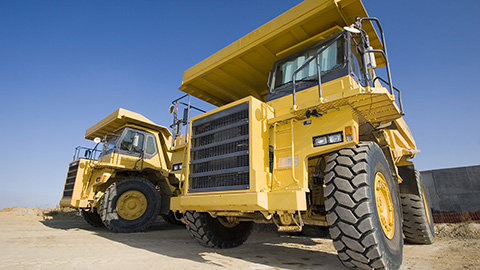Discovering the Uses and Advantages of Recycled Composites in Modern Industries
The combinations of recycled products with innovative composite innovations offers a promising avenue for enhancing sustainability, durability, and cost-efficiency across numerous sectors. As industries seek ingenious options to address environmental worries and boost functional performances, the unification of recycled compounds arises as an engaging option.
Ecological Benefits of Recycled Compounds
The use of recycled compounds in modern industries uses significant environmental benefits, adding to the decrease of waste and the preservation of all-natural sources. By integrating recycled compounds into producing procedures, markets can reduce their reliance on virgin materials, therefore lowering the amount of waste produced and the energy needed for removal and production. This shift towards making use of recycled compounds assists in drawing away products from garbage dumps, relieving the worry on waste monitoring systems, and reducing greenhouse gas emissions connected with traditional production techniques.
Moreover, the use of recycled composites advertises the preservation of natural sources such as hardwood, minerals, and water, which are commonly depleted through the removal and processing of basic materials (composites). By prolonging the lifespan of products via recycling, markets can help maintain environments and biodiversity by decreasing the need for brand-new sources. Generally, the adoption of recycled compounds in contemporary markets plays an important role in advertising sustainability and mitigating the ecological impact of manufacturing processes
Boosted Sturdiness in Item Manufacturing
With a focus on long life and robustness, integrating recycled composites into item production processes improves longevity and sustainability. By using recycled compounds, producers can produce products that are not only strong but likewise immune to wear and tear, making them perfect for lasting use in various markets. The mix of different materials in recycled compounds can frequently cause enhanced stamina and durability compared to standard products, offering an economical remedy for producing lasting products.
Among the essential advantages of using recycled compounds in product production is the capability to customize the product buildings to meet specific longevity requirements. By changing the structure and manufacturing methods, makers can tailor the recycled composites to endure severe environmental conditions, heavy tons, or constant usage without compromising on performance. This adaptability in design and production permits for the production of highly resilient products that maintain their integrity in time, minimizing the requirement for frequent replacements and ultimately adding to a much more sustainable manufacturing procedure.
Cost-Effectiveness and Financial Benefits
Integrating recycled compounds right into product manufacturing not only boosts sturdiness and sustainability yet also provides considerable cost-effectiveness and financial advantages. Using recycled compounds can bring about reduced material expenses as recycled products are frequently less costly than virgin products. Furthermore, reusing composite materials can lower waste disposal costs and lower the need for garbage dump room, adding to total price financial savings for sectors.

Advancement and Design Flexibility With Recycled Compounds
Using recycled compounds in modern sectors provides exceptional opportunities for technology and style flexibility. By incorporating recycled materials into composite production processes, firms helpful hints can press the boundaries of typical style constraints and check out new opportunities. The adaptability of recycled composites enables the creation of intricate shapes and frameworks that may not be achievable with traditional products.
Among the key benefits of recycled composites is their capacity to be molded right into various types, giving designers the freedom to explore unique forms and dimensions. composites. This flexibility opens a world of imaginative opportunities, allowing the growth of light-weight yet resilient items that meet the certain demands of different markets
Moreover, making use of recycled compounds advertises sustainable methods and supports the round economic climate by reducing waste and reducing the environmental influence of making procedures. This focus on environment-friendly layout remedies aligns with the growing trend towards sustainability in modern-day sectors, making recycled compounds a valuable resource for innovative and forward-thinking business.
Applications Throughout Various Industries
Recycled composites discover diverse and impactful applications across a broad variety of markets because of their one-of-a-kind residential or commercial properties and sustainability advantages. In the automobile industry, these materials are significantly utilized for making durable and light-weight parts, boosting fuel performance and reducing carbon emissions. The aerospace sector advantages from recycled composites in the manufacturing of airplane components, where the materials' strength-to-weight ratio is crucial for guaranteeing safety and performance. In construction, these compounds are used for creating solid yet green structure products, contributing to sustainable framework advancement. The renewable power field utilizes recycled composites in wind turbine blades and photovoltaic panels, utilizing their strength and resistance to harsh ecological problems. Additionally, the aquatic market utilizes these materials for manufacturing watercraft hulls and parts, offering boosted longevity and deterioration resistance. The adaptability and sustainability of recycled composites make them beneficial across numerous sectors, driving innovation and ecological stewardship. composites.
Conclusion
In final thought, the application of recycled composites in modern-day industries uses substantial important source environmental benefits, improved durability in item production, cost-effectiveness, and economic advantages. Moreover, using recycled you can look here compounds permits technology and design flexibility across different sectors. In general, the adoption of recycled composites provides a sustainable and sensible service for meeting the requirements of the market while likewise lowering ecological impact.

One of the vital benefits of using recycled compounds in product manufacturing is the capability to customize the material residential or commercial properties to meet details toughness demands. Making use of recycled compounds can lead to reduced product costs as recycled products are typically less expensive than virgin products. The aerospace industry advantages from recycled composites in the manufacturing of aircraft parts, where the products' strength-to-weight ratio is critical for making sure safety and efficiency.
Comments on “High-Performance Composites for Eco-Friendly Construction”